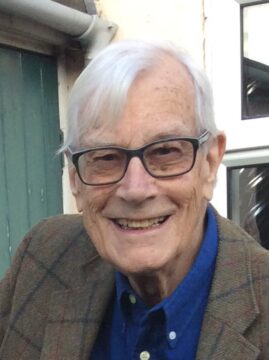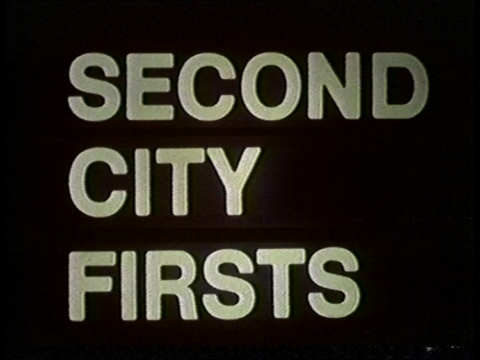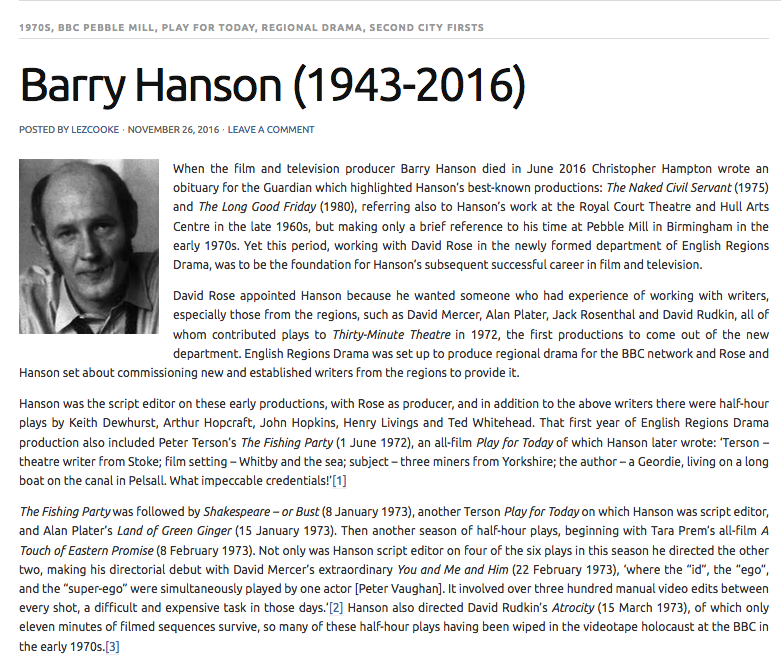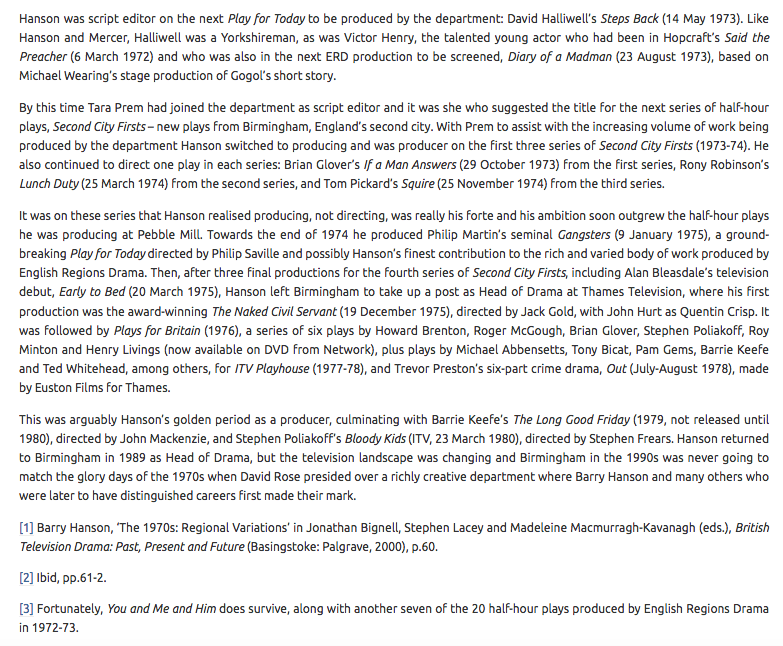Tag: Lez Cooke
Club Havana screening 11th Feb 2019
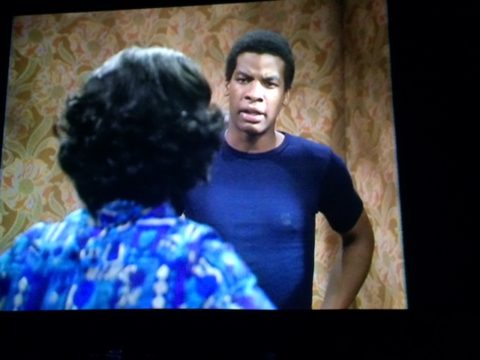
Club Havana screen grab. Copyright resides with the original holder, no reproduction without permission
Screening on Monday 11 Feb, 18.00 NFT2
Club Havana (BBC2 1975, Second City Firsts, Dir Pam Brighton, with Don Warrington, Mona Hammond, Julie Walters, Alfred Fagon. 35mins)
After twelve years apart, Mrs Jordan’s son (Warrington) arrives in Birmingham from Jamaica. Writer Barry Reckord returns to the theme of an inter-racial relationship, first explored in You in Your Small Corner, which causes conflict within a Jamaican family.
Introduction by season co-curator Lez Cooke, producer Tara Prem, script editor Peter Ansorge and actor Don Warrington (work permitting).
Here is the link to the ‘Forgotten Drama’ project website for more details:
https://forgottentelevisiondrama.wordpress.com/2019/01/10/forgotten-black-tv-drama-season-at-bfi-southbank-february-2019/
Thwum 1975
Another Second City First has recently been recovered from director Pedr James – Thwum 1975, featuring Pete Postlewaite in his first screen appearance. It is being shown as part of Missing Believed Wiped at the BFI Southbank on 16th December 2017.
Thanks to Lez Cooke for letting me know about the find and the event.
Here is the Radio Times entry for Thwum:
‘A series of new plays from Birmingham
Thwum by MIKE STOTT
‘ In 14 minutes, 20 seconds we are going to be privileged to contact living creatures from another world, another galaxy even …’
Designer MYLES LANG Producer TARA PREM Director PEDR JAMES
Contributors
Unknown: Mike Stott
Designer: Myles Lang
Producer: Tara Prem
Director: Pedr James
Joy: Rosalind Elliot
Duffy: Peter Postlethwaite
Bernard: Paul Moriarty’
Michael Wearing biography by Lez Cooke
This article is from the Forgotten Television Drama website: https://forgottentelevisiondrama.wordpress.com/2017/06/07/michael-wearing-1939-2017/ by permission of Lez Cooke
Michael Wearing (1939-2017)
Michael Wearing, who died on 5 May 2017, was one of the talented people David Rose brought into television in the 1970s. Following the recent deaths of Barry Hanson, also recruited by Rose, Philip Saville, with whom Wearing worked on Boys from the Blackstuff, Rose himself in January and Christopher Morahan in April, the last few months have seen obituaries of some of the leading producers and directors from the so-called ‘golden age’ of British television drama.
After studying Anthropology at Newcastle University, where he was involved with a theatre group, Michael Wearing got a job as an assistant stage manager at Bromley before moving to the Royal Court Theatre, where he did his first directing. While touring a stage version of Gogol’s The Diary of a Madman, which he directed, Wearing met David Rose, then head of English Regions Drama in Birmingham, who subsequently directed a television version of the play at Pebble Mill, dramatized by Wearing and Victor Henry, who played the eponymous madman. Three years later, Wearing joined Rose’s regional drama department as script editor. In 1979 he directed Jack Shepherd’s Underdog (BBC2, 4 May 1979) for W. Stephen Gilbert’s The Other Side series, but was otherwise a script editor for four years at Pebble Mill, working with writers such as Alan Bleasdale, on Scully’s New Year’s Eve (BBC1, 3 January 1978) and The Black Stuff (BBC2, 2 January 1980), and Ron Hutchinson, on The Out of Town Boys (BBC1, 2 January 1979), writers with whom Wearing developed a particular rapport.
The following year he produced Stephen Davis’s Trouble with Gregory (BBC2, 23 February 1980) and Ron Hutchinson’s six-part Bull Week (BBC1, 1980), a social realist drama set in a factory in Birmingham, but it was Malcolm Bradbury’s The History Man (BBC2, 1981), adapted by Christopher Hampton, that confirmed Wearing’s penchant for progressive TV drama. The History Man was a four-part serial, a form with which Wearing was to excel as the single play gave way to the authored serial on British television in the 1980s. Ron Hutchinson’s four-part contemporary thriller Bird of Prey (BBC1, 1982) was followed by Alan Bleasdale’s five-part Boys from the Blackstuff (BBC2, 1982) which Wearing guided to the screen after a protracted production period. Wearing suggested Bleasdale write The Muscle Market (BBC1, 13 January 1981), originally intended to be part of the series, as a separate Play for Today, in order to keep him on board at a time when the BBC was prevaricating about commissioning a more expensive regionally base drama series. Wearing recruited Philip Saville to direct Boys from the Blackstuff, shooting four of the five episodes on video to keep costs down – a decision which arguably enhanced the contemporary realism of Bleasdale’s ‘state of the nation’ drama.

Boys from the Blackstuff, Snowy’s death. Photo by Maggie Thomas, no reproduction without permission.
Following the departure of David Rose to Channel Four, BBC English Regions Drama gradually declined as an important producer of regional drama; indeed, Boys from the Blackstuff represents the department’s last great achievement. Wearing subsequently left Birmingham, but such was his reputation that he was subsequently re-engaged by the BBC to executive produce the final series of Play for Today in 1984, personally producing plays by Howard Brenton, Barrie Keefe and Davie Pirie. Later in 1984 Wearing produced Alan Clarke’s last studio play, Stars of the Roller State Disco (BBC1, 4 December 1984). In the same year he was invited to produce a contemporary serial, then entitled ‘Magnox’, which Troy Kennedy Martin had been working on for some time. Wearing brought in Martin Campbell to direct and they both worked with Kennedy Martin to realise his vision. The convoluted nuclear thriller which emerged, re-titled Edge of Darkness (BBC2, 1985), was on of the seminal dramas of the decade, proving such a success when it was broadcast on BBC2 that it was immediately repeated on BBC1, Edge of Darkness won six BAFTA awards in 1986, including Best Drama Series/Serial.
After a production of Malcolm Bradbury’s Rates of Exchange fell through, Wearing moved to ITV for the first time, producing the feature film Bellman and True (1987) for Euston Films/Thames TV/Handmade Films. Subsequently shown on ITV in a longer three-part version in 1989. In January 1988 he returned to the BBC as head of Drama at BBC Birmingham, producing Peter Flannery’s Blind Justice (BBC2, 1988), a five-part drama about two radical barristers, and several films for series such as Screen One and Screen Two, including Michael Eaton’s Fellow Traveller (BBC2, 10 February 1991) directed by Philip Saville, about American writers working anonymously in Britain at the time of the McCarthy witch hunts/ As an indication of his propensity to speak his mind, Wearing drew an analogy between the subject of Fellow Traveller and contemporary developments in British broadcasting, with new government proposals threatening the future prospects of radical television drama. Such pronouncements only seemed to enhance his reputation, however, and in 1990 Wearing was recruited by BBC head of Drama Mark Shivas to become head of Drama Serials.
As the BBC entered a more competitive era, Wearing believed that quality drama could be the corporation’s chief weapon; among the many serials he was responsible for in the 1990s were classic literary adaptations such as Middlemarch (1994), Martin Chuzzlewit (1994), Pride and Prejudice (1995), Nostromo (1997) and Our Mutual Friend (1998), as well as original authored serials such as Paula Milne’s Die Kinder (1990), Hanif Kureishi’s Buddha of Suburbia (1993), Peter Flannery’s Our Friends in the North (1996), Dennis Potter’s Karaoke (1996) and Cold Lazarus (1996), and Tony Marchant’s Holdings On (1997).
Throughout this period, Wearing was an outspoken critic of BBC management, especially following the appointment of John Birt as director general in 1992, Wearing believed that Birt’s policies were stifling creativity and, after threatening it on more than one occasion, he resigned in February 1998. There was much industry sympathy for his position and, shortly after announcing his resignation, he was awarded the Royal Television Society’s highest accolade, the Cyril Bennett Judges Award, having received BAFTA’s Alan Clarke Award for outstanding achievement in television in 1997. He subsequently took up a position with the independent production company Irish Screen, excutive-producing the feature films Human Traffic (1999) and When the Sky Falls (2000) and the six-part serial Aristocrats (BBC1, 1999). After Irish Screen was wound up Wearing produced Farrukh Dhondy’s Red Mercury (2005), directed by Roy Battersby, a feature film about three young Muslim men who form a terror cell in London. He was also co-executive producer on the feature film version of Edge of Darkness (2010), which he told me in 2009 was ‘kicked-started by 9/11’, the 2001 attacks giving him an idea of how re-work Troy Kennedy Martins’ masterpiece in the new ‘age of terror’.
Speaking about his new job with Irish Screen in 1998, Michael Wearing said his intention was ‘To have fun doing work that matters.’ As a mission statement it sums up his attitude towards producing drama throughout his illustrious career.
(This is a revised version of a biography written for BFI Screenonline in 2009).
Lez Cooke
Barry Hanson obituary – Lez Cooke
The article below about Barry Hanson’s career was written Lez Cooke. It is published on the Forgotten Drama research project website: https://forgottentelevisiondrama.wordpress.com/.
